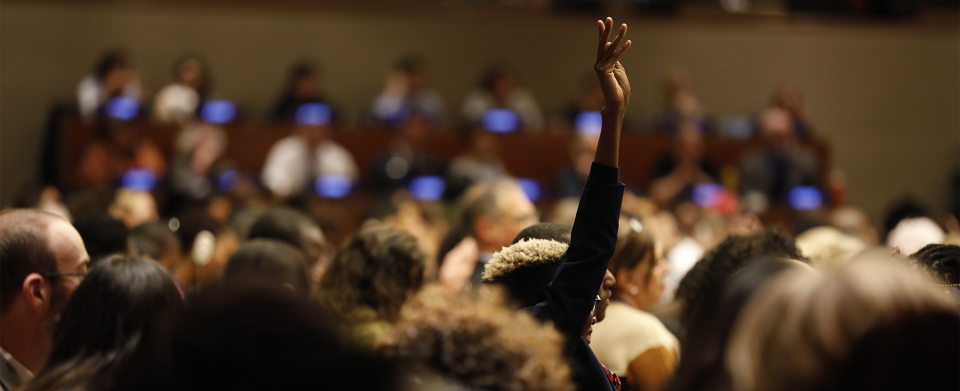Civil society engagement

Participants of a townhall meeting held as part of the sixty-third session of the Commission on the Status of Women. The townhall served as an opportunity for civil society representatives to engage with Secretary-General António Guterres and his senior leadership. Photo: UN Photo/Ryan Brown
Civil Society and the UN
Since the 2004 Report on United Nations-Civil Society Relations, UN entities have made great strides to institutionalize the way they relate and work in cooperation with CSOs at the global, regional and national levels.
In the fields of development, human rights, economic and social affairs and development, UN relations with civil society are well defined and valued.
The UN recognizes the importance of partnering with civil society, because such a partnership can help to advance the Organization’s goals, and support our work at the global, regional, national and community – or local level.
Enhancing Engagement with Civil Society in UN Counter-Terrorism Activities
Given that both the Global Counter-Terrorism Strategy and the United Nations PVE Plan of Action have recognized the need to engage civil society, engaging CSOs has become an important element of UNOCT’s implementation of mandates related to preventing and countering terrorism and violent extremism that can be conducive to terrorism.
Engagement with CSOs is particularly important in the areas of protecting and promoting human rights, as well as engagement with youth and women to ensure that the views of civil society are fully reflected in the UN’s counter-terrorism policies and programmes.
To ensure systematic, coherent, and structured engagement with civil society, UNOCT developed and adopted a Civil Society Engagement Strategy to support UNOCT and Global Counter-Terrorism Coordination Compact working groups to better engage with a wide variety of civil society actors at the global, regional and national levels.

